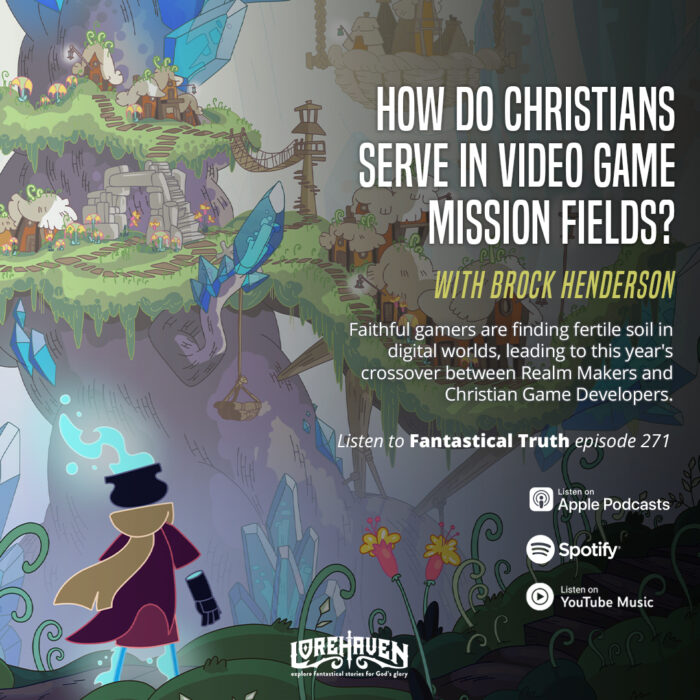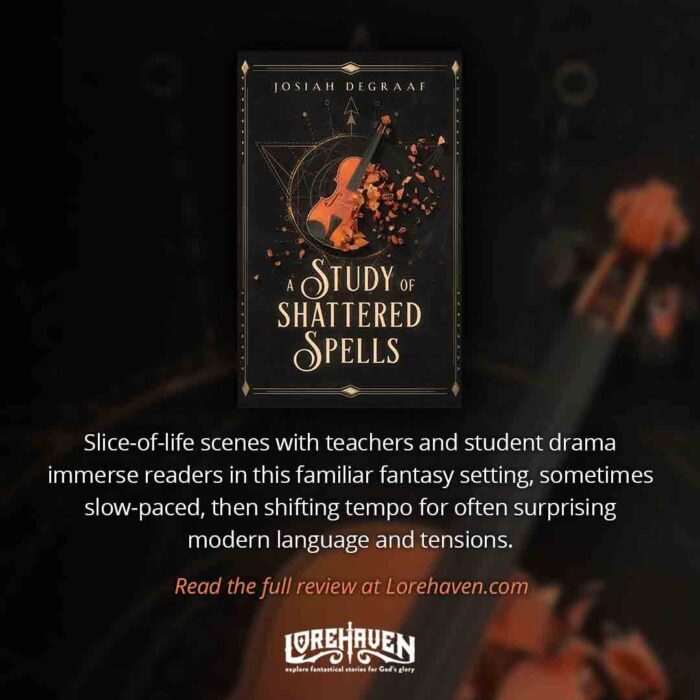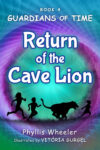208: How Does The Logos Theatre Adapt Narnia for the Stage? | with Noah Stratton
Podcast: Play in new window | Download (Duration: 1:06:42 — 62.4MB) | Embed
Sixteen years ago next month, there was a Chronicles of Narnia: Prince Caspian movie. But guess what version Narnia steward Douglas Gresham praised as a better adaptation of C. S. Lewis’s book? It is The Academy of Arts Logos Theatre’s Prince Caspian, now performing through April 2024 at The Museum of the Bible in Washington, D.C.! We invite one Logos artisan into our studio to explore puppetry and performance for Christ’s glory.
Episode sponsors
- Oasis Family Media: “1232” dramatic podcast
- Changelings: Insurgence by Liam Corley
- Story Embers summit, May 23–25, 2024
Mission update
- Jenneth Dyck’s article about the Prince Caspian play
- Lorehaven reviews: last week, Saints and Monsters; next week, Lion Warrior
- Subscribe free to get updates and join the Lorehaven Guild
 Introducing guest Noah Stratton
Introducing guest Noah Stratton
As executive director of The Academy of Arts Logos Theatre, Noah Stratton takes on many roles both offstage and on. Through the years, Noah has been privileged to portray Ebenezer Scrooge in A Christmas Carol: A New Musical, King Miraz in Prince Caspian, Judah in God Meant it for Good, Professor Bhaer in Little Women, Mr. Tumnus/Professor Kirke in The Lion, the Witch and the Wardrobe, and much more.
About the Logos Theatre
The Logos Theatre was founded by The Academy of Arts in 2006 with the express purpose of impacting our culture for Christ through the powerful medium of storytelling on stage. Its 300-seat auditorium, proscenium arch, and revolving stage is housed in The Academy of Arts headquarters in Taylors, SC, and has been attended by audiences from all over the world. With the understanding that all truth comes from God, The Logos Theatre carries out the Academy’s mission of “making the Bible come alive in minds and hearts” in a unique and powerful way, by choosing to only tell stories of truth and purpose. The Logos Theatre has further grown its impact in the culture by adding many original productions to its repertoire such as C. S. Lewis’s The Chronicles of Narnia, God Meant it For Good (the true story of Joseph and his brothers in Egypt), Esther, The Venture of 1620, The Scarlet Pimpernel, Charles Dickens’s A Christmas Carol, and much more. Each one of these professional productions and musicals is written and crafted by the artistic team of The Logos Theatre to make a lasting impact on our culture by reaching the minds and hearts of the case members who perform them and the audiences who attend them.
1. Why make biblical, fantastical, historical plays?
- Biblical stories: Joseph, Esther, familiar territory for Christians
- But also “secular” historical tales: from “1620” to “The Scarlet Pimpernel”
- Then comes the Narnia universe—isn’t this a drastic genre departure?
2. What are the challenges of ‘Prince Caspian’?
- Logos performed an existing The Lion, the Witch and the Wardrobe.
- That led to a wholly original production of The Horse and His Boy.
- And this year Logos is performing their own version of Prince Caspian.
- C. S. Lewis’s stepson Douglas Gresham is a big fan of these adaptations.
- If you hear this in April, act fast—Museum of the Bible shows end April 27!
- So far, the only way to see the Narnia shows is to go see them live.
- At least in trailers, the acting, aesthetics, and puppetry all look amazing.
- You can listen to this epic song “Look for the Morning” from Caspian.
3. Which stories are next for Logos Theatre stages?
- Academy of Arts late founder Dr. Nicky Chavers has recorded Aslan’s voice
- … For all seven Chronicles of Narnia, before his passing in 2021
- So it sounds like The Logos Theatre is in Narnia for the long haul!
- Coming in 2024: plays about creation/evolution, Robin Hood, Christmas.
- Coming in 2025: The Cross and the Switchblade, The Secret Garden.
Com station
Top question for listeners
- When will you go see The Chronicles of Narnia live on stage?
Cody replied to ep. 207. Should We Get Mad When Christians Scorn Fantastical Fiction?
Here’s a quote from Shakespeare that kind of relates to this topic:
For naught so vile that on the Earth doth live
But to the Earth some special good doth give;
Nor aught so good but, strained from that fair use,
Revolts from true birth, stumbling on abuse.
Next on Fantastical Truth
What comes to your mind with the label “Christian fiction”? If you grew up evangelical or heard the stereotypes, you likely think negative assumptions. For example, we assume “Christian fiction” has predictable plots, shallow characters, and cheap evangelism. Even when some stories do, how can we avoid our own cliched notions about all those “bad” Christian-made novels?


































Share your thoughts about this podcast episode